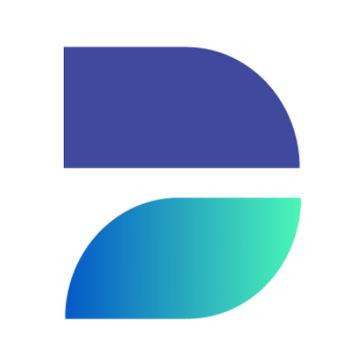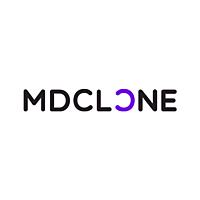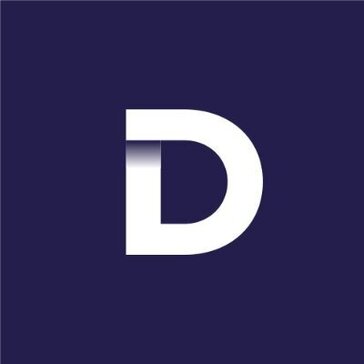Description

DATPROF Privacy

MDClone
Comprehensive Overview: DATPROF Privacy vs MDClone
DATPROF Privacy and MDClone are both tools designed to address privacy concerns in data management, but they operate within distinct frameworks and target somewhat different markets.
a) Primary Functions and Target Markets:
DATPROF Privacy:
- Primary Functions: DATPROF Privacy is primarily focused on data masking to protect sensitive information in non-production environments. It offers functionalities like synthetic data generation, data subsetting, and test data management. Its main aim is to ensure that sensitive data is not exposed during testing and development phases, while still providing realistic datasets for users.
- Target Markets: The primary target markets are industries with stringent data privacy requirements, such as finance, healthcare, telecommunications, and insurance. Essentially, any organization that manages large amounts of sensitive data and requires extensive testing and development in non-production environments can benefit from DATPROF Privacy.
MDClone:
- Primary Functions: MDClone provides a platform for secure data utilization with a focus on healthcare data. Its main feature is synthetic data generation, enabling data analysis without exposing true personal health information (PHI). The platform allows users to perform data exploration, hypothesis testing, and data collaboration without breaching patient confidentiality.
- Target Markets: The main target market for MDClone is the healthcare industry, including hospitals, research institutions, and public health organizations. MDClone supports clinical data access, research, and operations planning by providing a safe environment to utilize patient data.
b) Market Share and User Base:
- DATPROF Privacy: While precise market share figures are not typically publicly available, DATPROF is a well-known player in the European market for data privacy solutions, particularly within industries needing robust data masking capabilities. It serves a diverse range of clients including major corporations across Europe and North America.
- MDClone: MDClone has a significant presence in the healthcare industry, particularly in North America and Israel. It’s gaining traction due to its innovative approach to synthetic data, and it has partnered with several large healthcare systems, research institutions, and academic medical centers.
c) Key Differentiating Factors:
-
Approach to Data Privacy: DATPROF Privacy focuses more on masking existing data and subsetting to protect sensitive data, which means its primary users are in test and development environments looking to protect data from exposure. In contrast, MDClone uses synthetic data generation, allowing users to work with data that preserves the statistical properties of the original data without actually using it, making it particularly attractive for live data analysis and research use cases.
-
Industry Focus: DATPROF seems to cater to a broader range of industries that require data privacy in testing environments. Whereas MDClone's focus is tightly aligned with the healthcare industry, which includes unique requirements such as the necessity to comply with health information privacy laws like HIPAA.
-
User Interaction and Applications: MDClone’s platform is built to facilitate interactive data exploration with real-time data analytics, which aligns with the research and exploratory needs of healthcare professionals. DATPROF Privacy, while also advanced, is typically more geared towards IT operations, supporting developers and testers by integrating with CI/CD pipelines and offering automation for data provisioning processes.
Overall, while both tools address data privacy, they cater to different needs within the umbrella of privacy technology, with DATPROF Privacy being broader in industry appeal and MDClone being deeply specialized within healthcare.
Contact Info

Year founded :
Not Available
Not Available
Not Available
Not Available
Not Available

Year founded :
2015
+972 54-566-1331
Not Available
Israel
http://www.linkedin.com/company/mdclone
Feature Similarity Breakdown: DATPROF Privacy, MDClone
When comparing DATPROF Privacy and MDClone, two prominent tools in the field of data protection and management, it's important to evaluate their core features, user interface, and any unique functionalities that set them apart. Here's a detailed breakdown:
a) Core Features in Common
-
Data Masking and Anonymization:
- Both DATPROF Privacy and MDClone provide robust data masking and anonymization capabilities to ensure sensitive data is protected during development and testing.
-
Data Synthesis:
- These platforms offer synthetic data generation. This is crucial for maintaining privacy while allowing data analysis and app development without exposing real data.
-
Data Compliance:
- Both tools are built to ensure compliance with various data protection regulations such as GDPR, HIPAA, and others. They provide features that help organizations align with these regulations.
-
User Management:
- They offer user management and role-based access controls. This ensures that only authorized personnel can access sensitive data and the tools to manage it.
-
Automation Features:
- Automation capabilities are provided to streamline data protection processes and enhance efficiency in handling large datasets.
b) Comparing User Interfaces
-
DATPROF Privacy:
- Known for its straightforward, user-friendly interface that emphasizes ease of use. It uses a web-based platform accessible from various devices, which makes configuration and data management simple. It often appeals to users seeking less complexity and faster onboarding.
-
MDClone:
- Offers a more sophisticated interface with a focus on versatility and analytics. It often provides more advanced visualization and query tools, which can appeal to users comfortable with more layered and data-driven interfaces. It may include integrated analytic tools that can perform real-time query handling with synthetic data.
c) Unique Features
-
DATPROF Privacy:
- One of its distinctive features is its focus on simplicity and high-performance data masking. It offers highly customizable masking rules which can be adjusted with ease, making it particularly appealing for teams that require a quick and adaptable solution.
-
MDClone:
- MDClone stands out with its emphasis on the "Synthetic Data Engine", allowing users to simulate entire datasets for analytical purposes with zero-risk of exposing original data. MDClone's capabilities in allowing non-technical users to create complex, anonymized datasets easily can be a significant differentiator.
In summary, while both DATPROF Privacy and MDClone share core functionalities necessary for modern data protection needs, they differentiate themselves through their approach to user interface and unique features. DATPROF emphasizes simplicity and ease of use, while MDClone focuses more on offering flexible analytic tools and innovative data synthesis techniques.
Features

Not Available

Not Available
Best Fit Use Cases: DATPROF Privacy, MDClone
DATPROF Privacy and MDClone are tools designed for data privacy, but they cater to different needs and industry requirements. Here’s a detailed breakdown of their best-fit use cases:
DATPROF Privacy
a) Best Fit for Businesses or Projects:
-
Data Masking Needs: DATPROF Privacy excels in data masking operations, making it a perfect choice for businesses heavily reliant on software development and testing environments. It helps ensure that sensitive data remains protected in non-production environments by creating realistic but anonymized data.
-
Industries with Strict Compliance Requirements: Companies in sectors like finance, healthcare, and retail, where compliance with data privacy regulations such as GDPR, CCPA, or HIPAA is crucial, find DATPROF Privacy particularly beneficial.
-
Organizations with Complex Databases: Businesses looking to anonymize or pseudonymize vast amounts of data across complex systems and databases choose DATPROF due to its capability to handle intricate data schemas efficiently.
-
Medium to Large Enterprises: Typically suited for medium to large-scale organizations with significant data privacy management needs, DATPROF offers robust features and scalability that fit these larger data environments.
MDClone
b) Preferred Scenarios:
-
Healthcare and Research Data Utilization: MDClone is specifically designed to cater to the healthcare industry and research institutions. Its specialty is in generating synthetic data that preserves the statistical properties of real data while ensuring privacy, making it ideal for healthcare providers, academic researchers, and life sciences companies.
-
Innovation and Data Collaboration: When institutions need to collaborate on sensitive data for research or product development, MDClone provides a secure environment to explore data without compromising privacy. It allows for easier sharing of data insights without exposing actual sensitive data.
-
Organizations Seeking Agile Data Handling: MDClone’s ability to rapidly create and manipulate synthetic datasets can be particularly appealing for organizations that need to swiftly adjust to changing data requirements and innovate continuously.
-
Small to Large Healthcare Systems: While it can accommodate various sizes, MDClone is especially useful in environments where there is a need for frequent data-driven decision-making and experimentation, allowing for the secure use and sharing of patient data.
Catering to Industry Verticals and Company Sizes
-
Different Industry Verticals:
- DATPROF Privacy is versatile, serving multiple industries that require data masking and anonymization to comply with diverse regulatory standards. Its flexibility enables it to cater to sectors like finance, retail, and government, where data privacy is a priority.
- MDClone is more niche, primarily targeting the healthcare sector and research bodies. Its value proposition lies in its ability to provide synthetic data that enables significant research and development without privacy risks.
-
Company Sizes:
- DATPROF Privacy is generally favored by medium to large-sized enterprises with complex data and compliance needs. Its advanced features necessitate a scale that justifies its implementation.
- MDClone can serve small to large healthcare systems or research organizations, but its unique capability to generate synthetic data makes it particularly advantageous for larger institutions that benefit from extensive data collaboration and research initiatives.
Both DATPROF Privacy and MDClone offer different strengths, allowing organizations to choose based on specific industrial needs, data handling requirements, and organizational size.
Pricing

Pricing Not Available

Pricing Not Available
Metrics History
Metrics History
Comparing teamSize across companies
Conclusion & Final Verdict: DATPROF Privacy vs MDClone
To provide a well-rounded conclusion and final verdict for DATPROF Privacy and MDClone, let's compare them based on the typical factors that influence the choice of data privacy and management solutions, and address the following:
Conclusion and Final Verdict
a) Best Overall Value: Determining the best overall value between DATPROF Privacy and MDClone depends on specific organizational needs and context. However, if forced to generalize:
-
MDClone may offer better overall value for healthcare organizations and research-intensive environments where synthetic data generation and secure data collaboration across teams are key. It excels in its tailored approach to these sectors.
-
DATPROF Privacy tends to offer broader applicability across various industries due to its robust data masking features and ease of integration into existing systems.
b) Pros and Cons:
-
DATPROF Privacy:
Pros:
- Data Masking Expertise: DATPROF excels in static data masking, making it a great choice for organizations looking to protect sensitive data in non-production environments.
- Ease of Integration: The tool integrates well with existing databases and IT infrastructure, ensuring a seamless transition.
- Regulatory Compliance: It aids in achieving various compliance mandates like GDPR by anonymizing sensitive data effectively.
Cons:
- Specialization Limits: Its strong focus on data masking might limit utility for organizations seeking dynamic or synthetic data options.
- Industry Focused: May not have industry-specific features as pronounced as others, like in healthcare or R&D.
-
MDClone:
Pros:
- Synthetic Data Generation: The ability to create high-fidelity synthetic data is a notable advantage for research and data sharing without privacy concerns.
- Support for Research and Collaboration: Especially advantageous for healthcare, enabling data insights while maintaining privacy.
- Interactivity: Offers tools for users to interactively manipulate data, useful for user-driven insights and analytics.
Cons:
- Complexity: The advanced features and analytics capabilities might come with a steeper learning curve.
- Niche Usage: Its strength in certain sectors may mean it lacks general appeal across various industries.
c) Recommendations:
-
For Healthcare and Research Sectors: MDClone seems the most appropriate given its synthetic data capabilities and focus on collaborative research environments. Organizations with a robust need for data sharing and analytics could benefit most here.
-
For General Data Management Needs: DATPROF Privacy might be more suitable. Its specialization in data masking can serve broad compliance needs and be valuable across different industries, making it a versatile choice for organizations less focused on synthetic data.
-
Organization-Specific Needs: Analyze the specific data privacy challenges and organizational use-cases. If data masking and simplicity in deployment are top priorities, DATPROF Privacy is favorable. Conversely, for synthetic data and interactive data use across teams, particularly in sectors like healthcare, MDClone is ideal.
Ultimately, the decision should account for the specific strategic goals, compliance requirements, industry focus, and technical capabilities of the user’s organization. Users are encouraged to take advantage of trial periods or product demos when available to better understand each solution's capabilities in a real-world context.
Add to compare
Add similar companies



